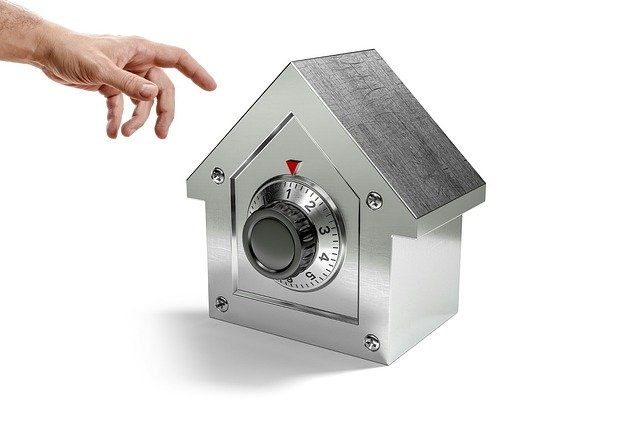Consumer Fraud: What Is It and How Can I Avoid It?
Tens of millions of people fall victim to consumer fraud every year. With the current events that are taking place across the world right now, chances are, that number will go up significantly.
If you believe that you’ve been the victim of fraud when purchasing goods or dealing with vendors, you’re in the right place. In this post, our team breaks down everything you need to know about this growing facet of crime including what consumer fraud is, what examples of it exist and how you can protect yourself and your business.
What Is Consumer Fraud?
To tee up our piece, let’s discuss what consumer fraud is defined as. Consumer fraud is a type of crime that targets people and business owners with the intention of causing them financial loss. These types of fraud usually center around schemes that present deceptive information in order to get victims to part ways with their money.
What Are Common Consumer Fraud Examples?
Consumer fraud is one of the broadest categories of financial crime given the many masks it can wear. Here are just a handful of fraud examples that people and small businesses encounter daily.
Identity Theft
Roughly 10 million Americans have their identity stolen every year. With your identity in a criminal’s hands, they can take out loans in your name, make online purchases and even commit crimes that are charged to your record.
The process of proving your innocence when dealing with identity theft can be extremely cumbersome and may require professional, legal intervention.
Credit Card Theft
With purchases moving away from cash and towards plastic, credit card theft is on the rise. All it takes now for a criminal to gain access to your credit is the numbers on the front of your card which can be noted in person or mined from an online form.
In the United States, credit card charges that are made via fraud over $50.00 are discharged from victims.
Misrepresentation of Goods
When you purchase a product because of claims it can accomplish something for you, you’re entitled to reasonably expect that promise will be fulfilled. If it isn’t and the shortcoming is due to blatant misrepresentation, you’re a victim of fraud and are likely entitled to a refund or further damages.
Mortgage Scams
With homeownership at roughly 65% in the United States, it’s no wonder why mortgages are one of the primary ways scammers target consumers. Mortgage scams usually take place in the way of offering distressed homeowners ways to keep their houses. These “debt-relief programs” may be set up to collect money without actually helping people keep their homes or in ways that are predatory (ultra-high interest rates).
Charity Schemes
America is the most charitable nation on earth giving more to organizations every year than any other country. That willingness to give, however, is often used as a means in which perpetrators of consumer fraud can get rich.
Any time you give money to a charity that’s not using its funds for its stated purpose, you’re the victim of fraud.
Debt Collections
One of the most common scams you might hear about is fraudulent collection scams. These scams tend to happen over the phone and primarily target senior citizens.
Debt collection scams are especially prevalent during tax season when scammers misrepresent themselves as IRS agents.
How Can You Avoid and Fight Against Fraud?
Now that you know some of the forms consumer fraud takes on, how can you protect yourself or fight against it if you’re already a victim? Here are four excellent tips:
- Use Best Payment Practices
When you’re buying something, online or off, use the best payment practices. That includes shielding the keypad when you’re typing in your PIN, only swiping your card and trustworthy locations and shopping on websites that leverage up to date SSL certificates.
- Protect Your Personal Information
Personal information like your social security number, driver’s license number, and address should be kept to yourself unless otherwise necessary. In cases where this information needs to be given out (a job application) use your judgment on who you’ll allow to collect this info and if the security risk is worth the reward.
- Research Who You’re Doing Business With
It’s easy to do an online search to learn about the company you’re doing business with and its products. Use that information.
By doing research before trusting a business, you’ll increase the odds of your purchase meeting your expectations.
- Call an Attorney
If you’re already a victim of consumer fraud, rather than stressing and trying to sort through the situation alone, call a consumer fraud attorney. With their help, you’ll be able to navigate your situation, put it behind you and recover as much of your financial losses as possible.
Consumer Fraud Can Affect You If It Hasn’t Already
Several people read about consumer fraud after hearing about it in the news. Most of those listeners, while concerned, feel they’re too savvy to fall victim to fraud schemes.
Believe us when we say that even the sharpest of victims lose tens of thousands of dollars every year to scams. With that in mind, always stay vigilant on which scams are the most pervasive at the moment. Then, take decisive action to lower your risk by following advice given out by trusted sources.
If you’d like more information on fraud or other financial matters that can affect your ability to run a business and live a rich life, check our more of the content on our blog!

